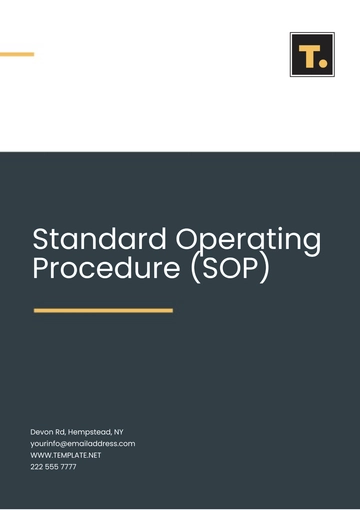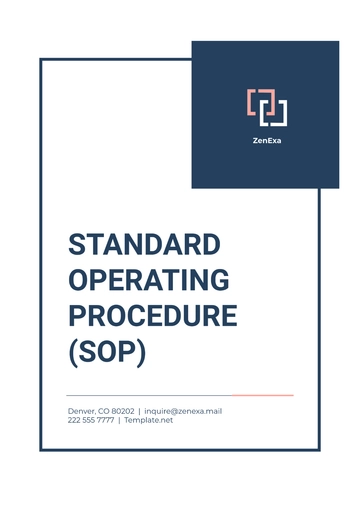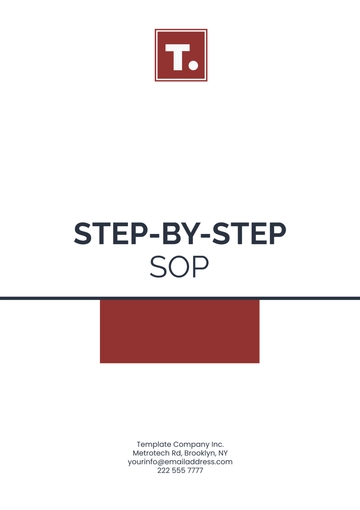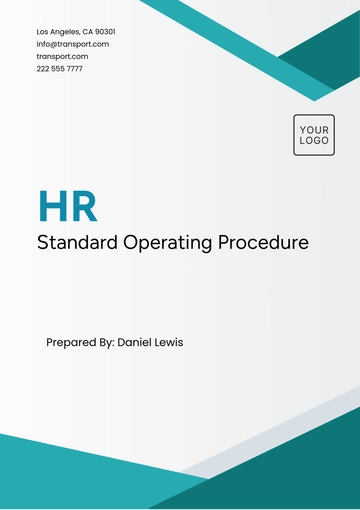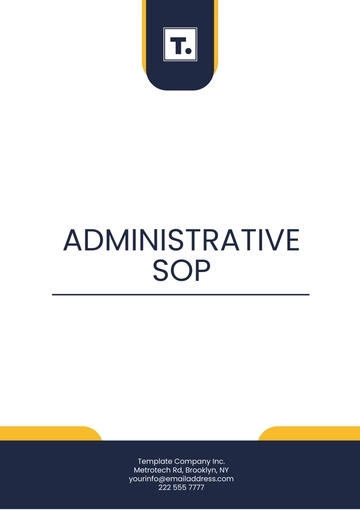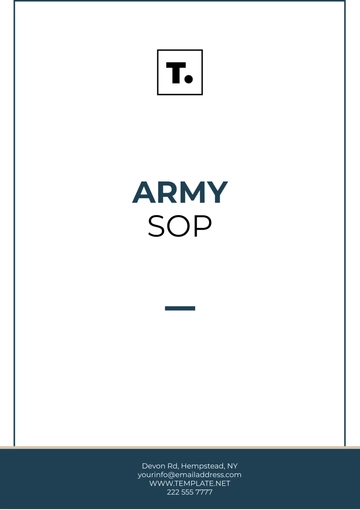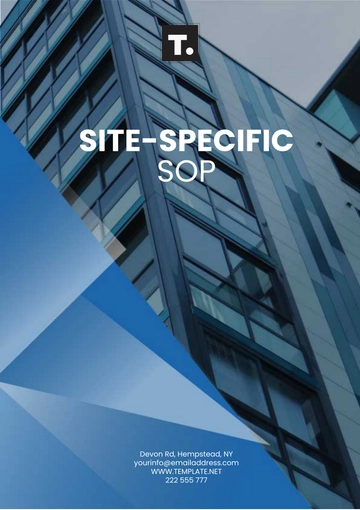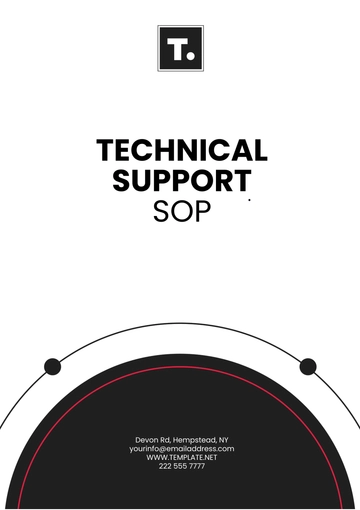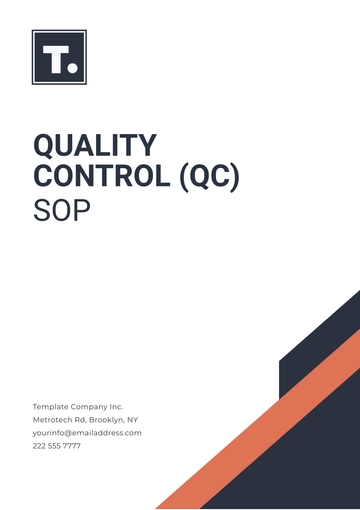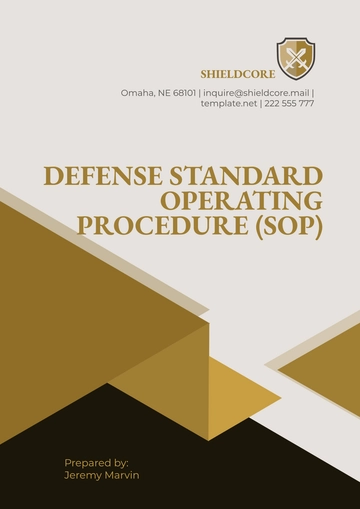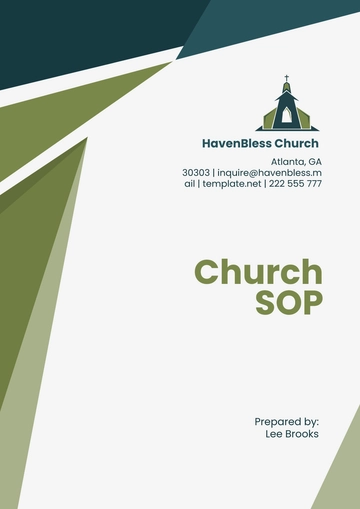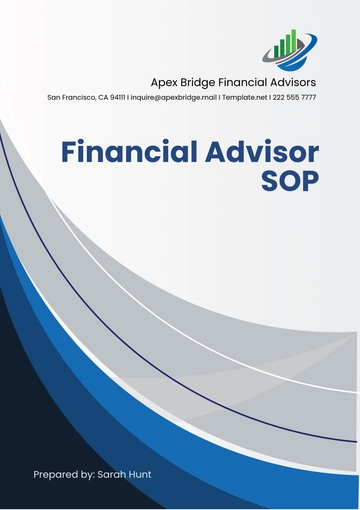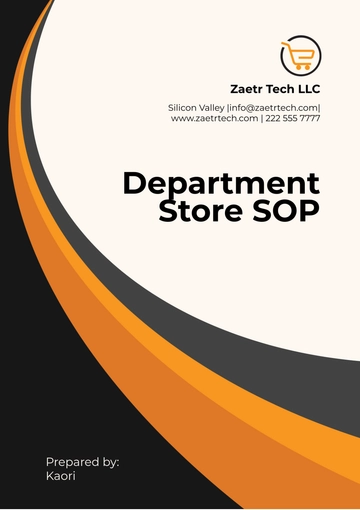Free Church Membership Management SOP
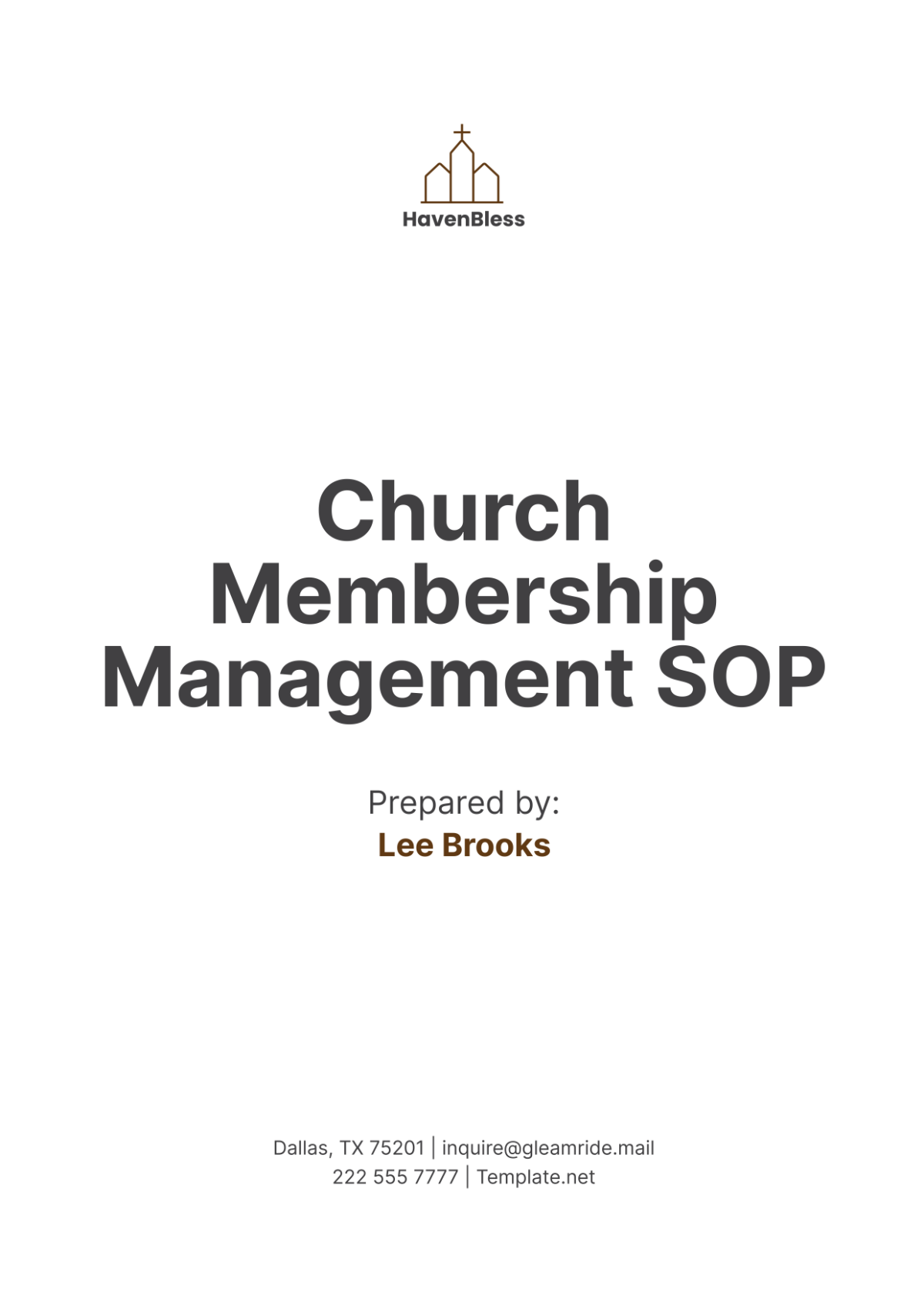
I. Introduction
Effective membership management is crucial for fostering a strong, engaged, and spiritually nurtured congregation. This Standard Operating Procedure (SOP) outlines the processes and practices for managing church membership, ensuring clear communication, efficient data handling, and robust member engagement. This SOP also includes guidelines for training members and providing programs that support their growth and involvement in church activities.
II. Membership Enrollment Process
The membership enrollment process ensures a streamlined and welcoming experience for new members. It covers the stages from initial contact to formal induction, each designed to integrate new members into the church community smoothly and meaningfully.
A. Initial Contact and Outreach
Welcome Information: Newcomers receive materials that introduce them to the church's core beliefs, mission, and values, as well as information on how they can get involved in church activities.
Information Collection: Gathering basic contact information allows the church to follow up with prospective members, answer questions, and provide further details about church life.
B. Membership Classes
Orientation Sessions: These sessions provide new members with an understanding of the church's doctrines, governance, and opportunities for involvement. They are essential for integrating new members into the church community.
Engagement Opportunities: Highlighting various ministries and activities helps new members find ways to get involved, which fosters a sense of belonging and active participation.
C. Formal Induction
Membership Covenant: New members are introduced to the church’s covenant, which outlines the expectations and commitments of membership. This covenant helps set a foundation for mutual understanding and shared values.
Public Recognition: Officially welcoming new members during a church service acknowledges their commitment and introduces them to the congregation, helping to establish a sense of community.
Mentorship Pairing: Pairing new members with established members helps them acclimate to church life, providing personal support and guidance.
Feedback Collection: Collecting feedback from new members after their induction helps refine the process and improve the overall experience for future newcomers.
III. Data Management
Data management involves collecting, storing, and managing member information securely and efficiently. This section ensures that the church maintains accurate records while protecting members' privacy.
A. Data Collection and Maintenance
Secure Storage: Member data must be stored in secure systems, with regular backups to prevent data loss. The church must comply with data protection regulations to safeguard members' information.
Regular Updates: Regularly updating member data ensures accuracy, which is crucial for effective communication and pastoral care.
Incident Response Plan: Developing a plan for responding to data breaches or security incidents helps minimize harm and ensures compliance with legal obligations.
B. Access Control
Data Access: Only authorized personnel should access member data, ensuring confidentiality and preventing misuse of information.
Training for Data Handlers: Staff and volunteers who manage data must be trained on privacy policies, data security measures, and ethical data handling practices.
Data Retention Policies: Establishing clear policies on data retention ensures that outdated or irrelevant information is properly disposed of, maintaining data integrity.
IV. Member Engagement and Communication
Member engagement and communication are vital for building a connected and active congregation. This section details strategies for maintaining regular contact and encouraging involvement.
A. Communication Channels
Newsletters: Regular newsletters keep members informed about church news, events, and opportunities. This helps maintain a connection between members and church leadership.
Digital Platforms: Utilizing digital platforms like email, social media, and the church website enhances outreach and engagement, making it easier for members to stay informed and involved.
B. Feedback Mechanisms
Surveys and Suggestion Boxes: These tools allow members to provide feedback on church activities and programs, helping the church to identify areas for improvement and celebrate successes.
Follow-up: Responsiveness to feedback demonstrates that the church values members' input and is committed to continuous improvement.
Personalized Communication: Tailoring communication to individual members' interests and needs enhances engagement and fosters a stronger sense of community.
Event Reminders: Sending reminders for upcoming events ensures that members are aware of opportunities for involvement, increasing participation rates.
V. Training and Development
Training and development programs are essential for equipping members with the skills and knowledge needed for active participation in church life.
A. Training Programs
Spiritual Growth: Programs focused on spiritual growth help members deepen their faith and understanding of Christian teachings, fostering personal and communal spiritual development.
Leadership Skills: Leadership training equips members to take on leadership roles within the church, ensuring a well-prepared and capable leadership team.
Training Benefits: Providing training programs helps members grow in their faith and skills, enhancing their ability to contribute to the church community. It also fosters a sense of investment and belonging.
Continued Education Credits: Offering continued education credits for completed training programs encourages ongoing learning and participation.
Certification Programs: Implementing certification programs for specific skills or knowledge areas provides formal recognition of members' achievements.
Program | Focus Area | Duration | Frequency | Instructor |
|---|---|---|---|---|
Bible Study Workshops | Biblical literacy | 6 weeks | Twice a year | Pastor or Bible Scholar |
Leadership Development | Leadership and governance | 4 weeks | Annually | Leadership Team |
Volunteer Training | Community service skills | 1 day | Quarterly | Outreach Coordinator |
Spiritual Formation | Prayer and meditation | 8 weeks | Monthly | Spiritual Director |
VI. Programs for Members
Offering diverse programs for members supports holistic growth and community engagement. This section outlines the various types of programs available to members, from educational to social and service-oriented activities.
A. Educational Programs
Theological Education: Classes on theology and church history help members deepen their understanding of Christian faith and traditions.
Practical Workshops: Workshops on topics like financial planning, parenting, and health provide valuable life skills and practical knowledge.
Intergenerational Programs: Developing programs that engage members of all ages fosters cross-generational relationships and strengthens community ties.
B. Social and Fellowship Activities
Small Groups: Small group gatherings offer opportunities for Bible study, prayer, and fellowship, fostering deeper relationships among members.
Social Events: Organizing events such as potlucks, retreats, and celebrations helps build a sense of community and belonging.
Member-Led Initiatives: Encouraging members to propose and lead new programs or activities empowers them and promotes diverse expressions of service and fellowship.
C. Service Opportunities
Community Outreach: Programs that engage members in local service projects, such as food drives or neighborhood clean-ups, encourage social responsibility and community involvement.
In-Church Volunteering: Members are encouraged to serve in various capacities within the church, such as in children’s ministry, worship teams, or hospitality.
Program | Type | Schedule | Coordinator |
|---|---|---|---|
Adult Education Classes | Educational | Every Sunday evening | Education Coordinator |
Family Game Nights | Social | Monthly, 2nd Friday | Fellowship Committee |
Community Food Drives | Service | Quarterly | Outreach Coordinator |
Youth Group Activities | Educational/Social | Weekly, Wednesday evenings | Youth Pastor |
Senior Ministry Gatherings | Social/Support | Bi-monthly | Senior Ministry Team |
VII. Review and Continuous Improvement
Regular review and updates to membership management processes ensure they remain effective and responsive to the evolving needs of the congregation.
A. Annual Review
Policy Review: Annually assessing the effectiveness of membership policies and procedures ensures they align with the church’s mission and values.
Member Feedback: Regularly gathering feedback from members helps identify areas for improvement and enhances member satisfaction.
B. Continuous Improvement
Training Updates: Updating training materials and programs regularly ensures they remain relevant and impactful, adapting to new challenges and opportunities.
Program Evaluation: Systematically evaluating the success of member programs helps refine offerings and improve their effectiveness.
Benchmarking: Comparing church practices with other similar organizations helps identify best practices and areas for innovation.
Technology Integration: Leveraging new technologies can streamline membership management processes and enhance member engagement.
By clearly defining processes for membership enrollment, data management, member engagement, training, and program development, this SOP ensures that the church can effectively support its members and fulfill its mission. Regular review and continuous improvement of these processes are essential to adapt to the needs of the community and maintain a welcoming and supportive environment. Implementing these guidelines will help the church cultivate a strong sense of community, deepen spiritual growth, and enhance member participation and satisfaction.
- 100% Customizable, free editor
- Access 1 Million+ Templates, photo’s & graphics
- Download or share as a template
- Click and replace photos, graphics, text, backgrounds
- Resize, crop, AI write & more
- Access advanced editor
Streamline membership processes with the Church Membership Management SOP Template from Template.net. This editable and customizable template features a detailed and practical design, ideal for standardizing procedures related to church membership management. The layout includes sections for membership application, approval processes, and record-keeping guidelines, ensuring consistent and efficient operations.
